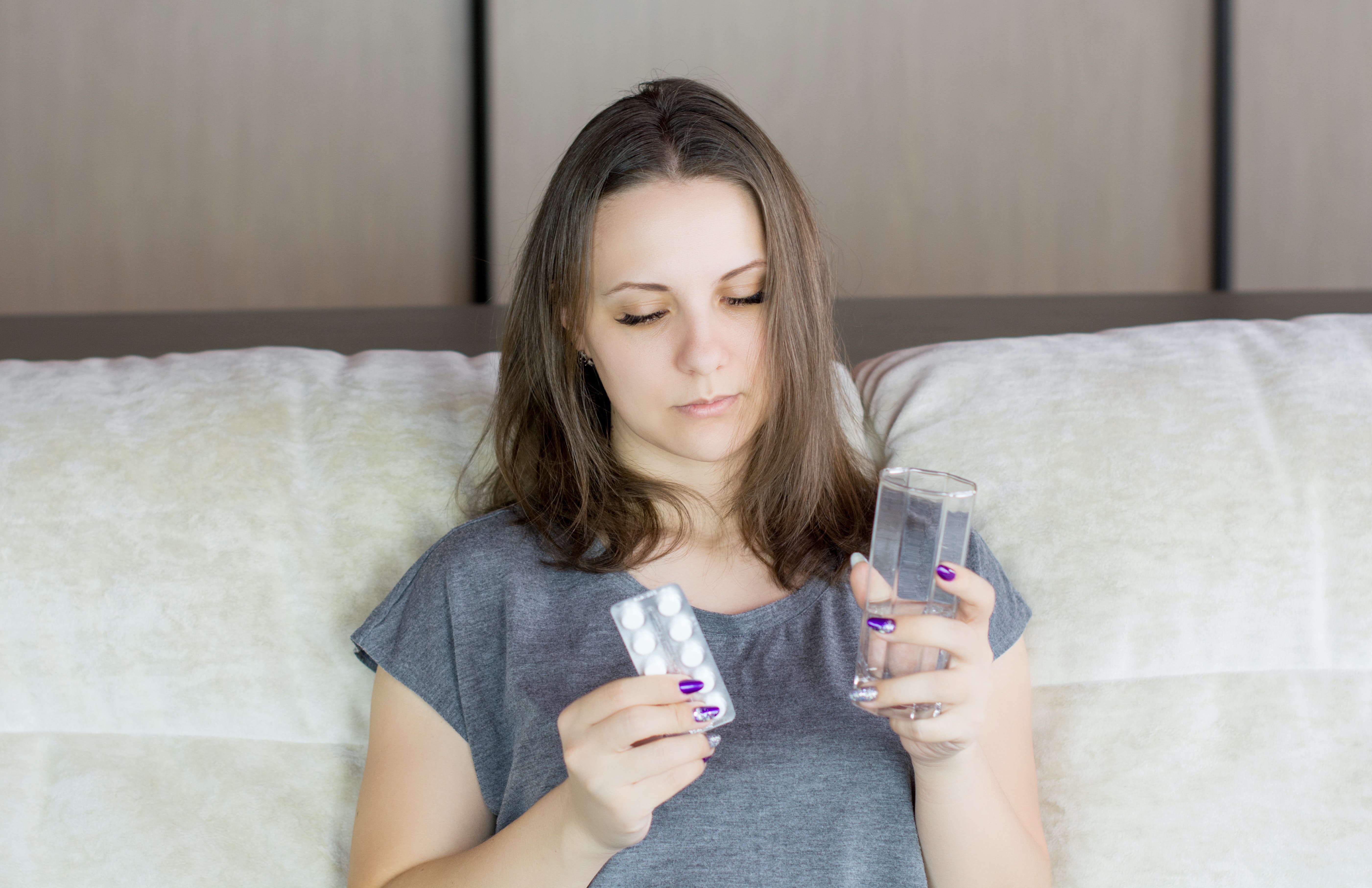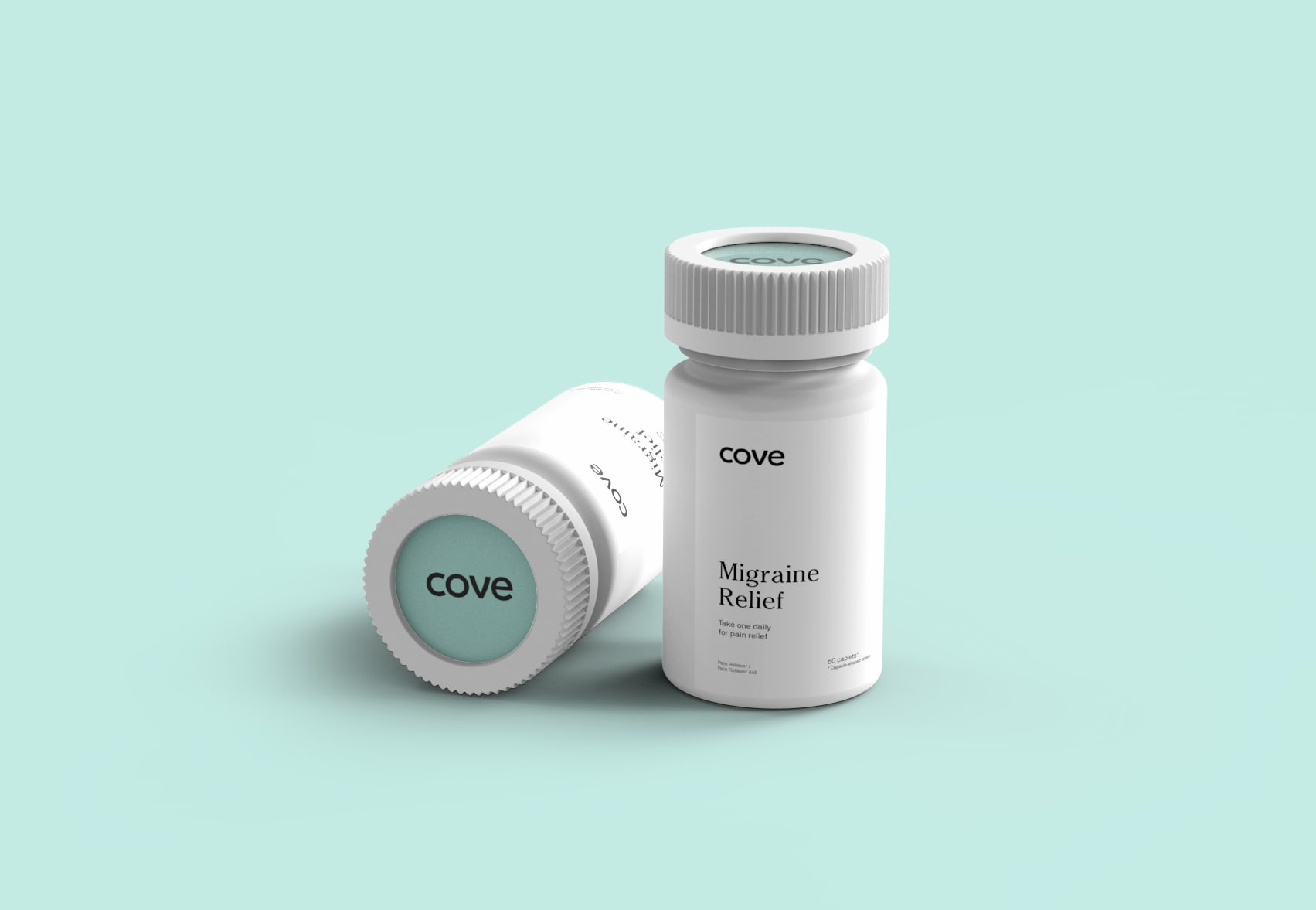Everyone with migraine experiences the condition differently, so it’s no surprise there’s a huge variety of potential treatments as well. When it comes to the most popular method of dealing with headaches, however, there’s one that stands head-and-shoulders above the rest: over-the-counter (OTC) pain relievers.
That’s not to say that OTC drugs are the best for migraine, just that they’re the easiest to access for a lot of people. If you want to stock your medicine cabinet with something that’ll work when you need it, over-the-counter might be a good place to start.
What are the best OTC migraine medications?
There are a few main kinds of pain relievers you’ll see on the shelves of your local drugstore:
Non-steroidal anti-inflammatory drugs (NSAIDs)
NSAIDs are less scary than they sound—it’s just the formal term for a very common type of pain medication. You may know these drugs by their individual generic or brand names, like:
- ibuprofen (brand names Advil® and Motrin®)
- naproxen (brand names Aleve®, Anaprox®, Naprelan®, and Naprosyn®)
- aspirin (brand names Anacin®, Ascriptin®, Bayer®, Bufferin®, Excedrin®, and Ecotrin®)
These medications treat pain, fever, and inflammation. While there haven’t been enough clinical trials to say definitively which one works best for migraine, researchers think ibuprofen may be more effective, and it’s also one of the least likely to cause side effects.
It’s important to note that you shouldn’t take multiple types of NSAIDs at the same time. As long as you’re not taking them too often, NSAIDs typically have pretty mild side effects (like heartburn or stomach pain), but the risk of more serious problems like kidney damage increases if you take more than one at the same time.
Acetaminophen
You may know acetaminophen by its brand name version, Tylenol®. Clinical studies have shown that it’s effective for migraine relief, though since it doesn’t treat inflammation in the brain (which doctors think may play a role in attacks), it may not work as well as one of the medications above. If it’s all you have in the house or you don’t like the side effects of NSAIDs, however, it’s another solid choice.
One other advantage of acetaminophen? You can take it at the same time as NSAIDs.
Combination migraine medications
There are a few OTC pain relievers that include aspirin, acetaminophen, and caffeine: Excedrin® Migraine, Goody’s® Extra Strength Headache Powder, and their generic versions. One study showed this combination of drugs to be more effective for migraine relief than ibuprofen alone.
Look out for that caffeine, though—while it can help relieve migraine headaches, too much can also trigger attacks. It’s generally recommended to limit your daily intake to two cups of coffee per day, so consider how much caffeine you’ve already had if you’re considering taking a medication that also contains it.
A note on medication overuse headache
Yes, the medication you’re using to relieve headaches…can cause headaches. What a bummer. According to the American Migraine Foundation, taking OTC medications more than twice a week puts you at risk of medication overuse headache.
Overusing NSAIDs can also cause serious kidney damage, so if you find yourself needing them more than twice a week, migraine-specific prescription medications like triptans and gepants are often a safer alternative. You may also want to consider non-medicinal treatment.
What non-medicinal products can relieve migraine pain?
There are all sorts of alternative migraine treatments out there, though it can be difficult to figure out which ones actually work. Treatments that have some research backing them include:
Cefaly migraine headbands
Cefaly is a relatively new product, the first device of its kind approved by the FDA in 2014 for migraine prevention. There have also been a few small studies showing that it’s effective for relieving attacks in the moment, though research is still ongoing.
You wear Cefaly on your forehead, and it sends tiny electrical impulses to stimulate your trigeminal nerve, which is then supposed to reduce migraine frequency and intensity. Cove Medical Director Dr. Sara Crystal has found it’s most helpful for patients who experience headache pain in the forehead. Unfortunately, it’s also pretty expensive, and it’s not covered by insurance.
Marijuana and CBD
Is there any medical condition people won’t recommend CBD for? Actually, board-certified neurologist and marijuana expert Dr. Eric Baron says, “There haven’t been any trials evaluating pure CBD use in any pain, migraine, or other headache disorders, so it’s currently impossible to say for sure whether it works.”
Marijuana on the other hand, has had a few studies show it could be beneficial for migraine, and the National Academies of Sciences, Engineering, and Medicine says there’s substantial evidence marijuana is an effective treatment for chronic pain in adults more generally.
Due to the…let’s just say varying legality of medical marijuana, there’s not a lot of information out there on its safety or side effects. So if you’re interested in using marijuana or CBD to treat your migraine, talk to your doctor first.
Essential oils and aromatherapy
Essential oils are highly concentrated chemical compounds extracted from plants. There haven’t been a lot of studies on how well aromatherapy works for migraine relief, though some people swear by it.
You can either inhale essential oils using a diffuser or apply them topically with a product like Cove's Essential Oil Roll-On. Never apply undiluted essential oils directly to your skin—they can cause severe irritation or burning.
What treatments can help prevent migraine?
Ultimately, the best way to treat a migraine attack is to prevent it from happening in the first place. There’s plenty you can do to help make headaches less frequent:
Take supplements and vitamins
“Supplements” is really a catch-all term for products like vitamins and minerals you can add to your diet. The ones that research shows may prevent migraine attacks are riboflavin (a.k.a. Vitamin B2), Coenzyme Q10 (CoQ10), and magnesium. Cove offers a supplement that combines all three called Beam.
Manage stress
Studies suggest stress may be the most common migraine trigger. Keeping your stress level under control by exercising, getting enough sleep, or even using cognitive behavioral therapy can make a major impact on the number of headaches you experience.
Identify and avoid migraine triggers
There are a lot of other lifestyle factors that can trigger an attack, from your diet or menstrual cycle to the weather. If you’re not sure exactly what’s setting off your headaches, tracking your migraine can help you figure it out. The better you understand your triggers, the easier it is to avoid them, or at least plan ahead for them.
And part of planning ahead is making sure you have the right acute treatments on hand. While OTC pain relievers are a good first-line treatment, if you find they’re not doing enough, you can talk to a Cove doctor about what other medications might work for you.
The information provided in this article is not a substitute for professional medical advice, diagnosis, or treatment. You should not rely upon the content provided in this article for specific medical advice. If you have any questions or concerns, please talk to your doctor.
Photo by Bermix Studio on Unsplash


